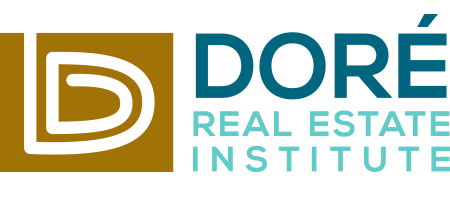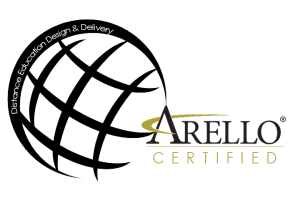The Pros and Cons Explained
If you’re thinking of joining the real estate industry, you need to know the benefits of being a real estate agent — and if they outweigh the negatives. Becoming a real estate agent is a great career choice for many entrepreneurial-minded people who want to own their own business. This guide will cover the pros and cons of being a real estate agent to help you decide if joining this industry is the right career move for you.
Pro: Flexibility
One of the major benefits of being a real estate agent is the flexible schedule that comes with the role. As an agent, you have the unique opportunity to build your own schedule to your specifications. Having flexible hours allows you to have greater control over your work-life balance. No longer do you have to punch the clock at exactly 8 AM. Instead, you could structure your days to begin as early or as late as you’d like, meaning you can start working when your personal productivity is at its peak while prioritizing non-work events, such as your kid’s basketball game. This flexibility is also one of the reasons real estate lends itself well to part-time opportunities.
Pro: Help Clients With a Monumental Purchase
Whether it’s a new home, something on the National Register of Historic Places, or anything in between, one of the most stressful transactions people make in their life is the purchase or sale of a home. It’s an emotional transaction, and one that benefits from having an experienced, compassionate agent around to help with the myriad of questions clients may have. As a real estate agent, your guidance and industry knowledge can make finding your clients’ dream home a reality, and your skill set directly benefits your community. No matter who your client is or what they’re seeking from you, having the opportunity to shape someone’s life so significantly makes being a real estate agent worthwhile.
Pro: Unlimited Income Potential
One of the popular benefits of being a real estate agent is the earning potential. Let’s be honest — paired with the flexible schedule and the fact that you can be your own boss, the money is likely why you’re interested in this industry. And there are plenty of opportunities to secure meaty commission checks, especially as you gain experience and expand your sphere of influence. But when it comes to real estate earning potential, you get out what you put in. Yes, the income potential is unlimited. However, agents aren’t typically paid a salary or hourly rate. Instead, they are paid by commission.
A commission is the fee paid when someone buys or sells a house.
As much as many wish they could keep the real estate agent commission check all to themselves, it doesn’t quite work that way. Commissions are generally split multiple ways since brokerages have different people involved in the sale or purchase of a house.
The average real estate commission is usually 5-6%, though that figure varies based on the agent’s experience. Then the agent divides that figure with their Broker as outlined in their listing agreement. So, yes, it’s possible to earn six figures by working in real estate. However, earning impressive commission checks will require your attention, hard work, and dedication over years. Don’t get discouraged; get inspired to become the local real estate expert in your market so that you can take home your slice of the commission.
Pro Tip: Are you concerned about your finances as a real estate agent? Meeting with a financial advisor and creating a budget can help you make the financial decisions you need to ensure you have a safety net during slow periods.
Pro: Career Growth Opportunities
There are many directions in which you can take your career as a real estate professional. When it comes to the pros and cons of becoming a real estate agent, this is one that can be overlooked. If you want to be a real estate agent forever, you can. But there are different types of real estate careers, including property management, real estate investment, real estate law and litigation, and so much more. Get your foot in the door by becoming a licensed agent, and then see where your interests take you. As a new agent, you’ll work under a real estate Broker to start your career, but after years of experience and more education, you can choose to create your own firm and become a Broker. All of this is to say that real estate provides ample opportunities to grow and diversify your skill set, whether you want to be the top residential real estate agent in your area, pick a niche in which to specialize, or pursue other roles in the industry.
 Con: Long Hours
Con: Long Hours
Real estate agents do not have set hours. The flexibility of this industry feature can be great. But sometimes, real estate agents work atypical hours, such as during the evening or over the weekend. Your job is making the buyer and seller happy, and sometimes that can’t be achieved in normal day-time hours. However, these long hours can be managed, particularly with thoughtful time management practices, boundary setting, and enforcing a healthy work-life balance.
Con: Single-Transaction Clients
The flipside of helping homebuyers with a major life purchase is that there are fewer transactions per client. While this fact may make you feel nervous, it’s important to note that your marketing efforts and networking can help mitigate the issue of single-transaction clients. Serve each client like they’re your mother (or, if your mother is more of a Mommy Dearest type, consider serving each client as though they’re your favorite teacher from high school). Work to become the local expert of your real estate market, build relationships with leads and clients to earn referrals, and maintain a professional-but-fun online presence. Over time, your networking will pay off, particularly if you can secure “word of mouth” marketing from the clients you’ve wowed.
Con: No Income Safety Net
When you become a real estate agent and work on commission, there is no guaranteed income. If the market is slow or your sales are lagging, it could mean that cash flow could be hard to come by. Building a reliable network and securing clients takes time, so it’s important to be realistic about what you’ll need to do to succeed in this industry – especially as a first-year agent. All new real estate agents should plan ahead by creating a business plan. Additionally, budget around your expected costs of being an agent, such as your Pre-Licensing education, exam fees, marketing, transportation, and more. For more information about the average cost of becoming an agent read the article: Your Top Expenses as a Real Estate Agent.
Getting a real estate license and starting your own real estate business unlocks a wealth of benefits, but it’s important to be mindful of its less glamorous aspects, too. Knowing the potential pitfalls may be enough for you to avoid them and set yourself up for success from the beginning, which is our hope in writing this guide for you. Should you decide that the flexibility, high-income potential, and emotional impact of the role, sign up with the leaders of real estate education and conquer your licensing exam with confidence.




